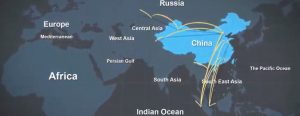Epoch Times reported that the 2nd “Belt and Road International Cooperation Summit” concluded on April 27 in Beijing. However, the Summit was described as lacking transparency as most of the meetings were held behind closed doors. As the media was not invited, they were not able to cover the meetings. The reporters were neither notified of the time of the opening ceremony nor were they given the chance to ask questions during the press conference at the closing ceremony. According to an article the BBC published, on April 27, Xi Jinping participated in a round table discussion with leaders from 37 countries. After that discussion, Xi held a press conference and declared that agreements in the amount of US$64 billion had been signed during the summit. However, Xi did not mention the scale of the debt that will be owed to China, nor did he say when the next “Belt and Road” summit will be held. Taiwan’s Liberty Times reported that, during the summit, even though China was trying to give answers to the criticism about the “debt trap,” “(China) exercises influence (in foreign countries)” and the entire summit just looked like it lacked transparency. There were also fewer reporters at the summit compared to the last time. Meanwhile unlike what was done in the past, the large screen in the press center was airing Xi’s entire speech. Reporters felt like they were watching the official CCTV version. In addition, China’s largest trading partners, the U.S. and India, were absent from the summit. None of the leaders from the U.S. G7 industrial countries including Japan, Australia, New Zealand, Canada, Britain, and Germany were present at the summit. Even the Sri Lankan Prime Minister and the Indonesian President, China’s close partners, did not attend the summit.
The Epoch Times article stated that Western democratic countries are worried that the “Belt and Road” project that China proposed will cause the underdeveloped countries participating in the project to fall into a debt crisis. Since there is lack of transparency in the projects and in the funding, it will lead to corruption involving the officials in the hosting countries. China also can use the “Belt and Road” project to export its dictatorship and its party culture to the outside world.
Source: The Epoch Times, April 28, 2019
http://www.epochtimes.com/gb/19/4/28/n11219915.htm

